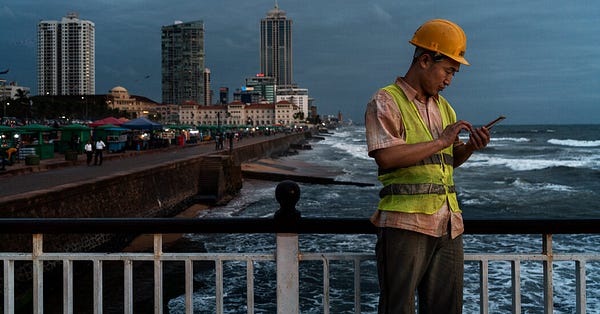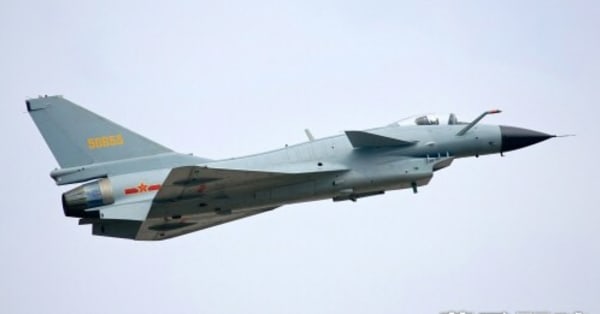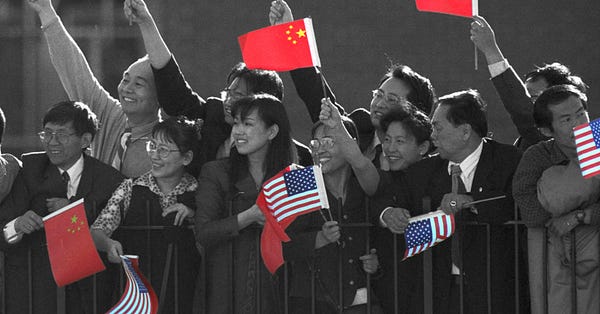Welcome to newsletter 32, the latest edition of Trade War. This week the Trump administration showed it has no intention of limiting its tech war to crackdowns on China’s Huawei and TikTok, but is extending it further, while the Chinese Communist Party under Xi continued to rapidly erode Hong Kong’s freedoms.
In a move that has many worrying it will further sever the fraying connections between Chinese and Americans, Trump announced that WeChat, the ubiquitous mobile app that has come to dominate communications and life in China and for Chinese around the world, could be in effect banned for use in the U.S.
Meanwhile, Beijing used the just-passed national security law to continue with an ever more sweeping crackdown in Hong Kong, a clear sign that the Chinese Communist Party has absolutely no intention of continuing to protect the legal and civil rights it previously promised.
Digital bridge connecting China to the world?
On Thursday, the Trump team issued an executive order that takes effect in 45 days that “could pull China’s most important app from Apple and Google stores across the world and prevent American companies from doing business with its parent company, Tencent,” reported the New York Times.
“With much of the Chinese internet locked behind a wall of filters and censors, the country’s everything app is also one of the few digital bridges connecting China to the rest of the world. It is the way exchange students talk to their families, immigrants keep up with relatives and much of the Chinese diaspora swaps memes, gossip and videos. Now, that bridge is threatening to crumble,” the paper of record writes.
It’s the Berlin wall, tear it down
“WeChat is not a bridge, it’s the Berlin wall, tear it down,” tweets Shawn Zhang, a Chinese law student in Canada who has made a name for himself identifying the location of Xinjiang internment camps through Internet search including Google Earth. “It’s an integral part of China’s great firewall, the opposite of free and open internet. Chinese people, inside & outside China, will better off without WeChat,” he writes.


Censoring and surveilling
Below is a good Twitter thread by James Griffiths, author of "The Great Firewall of China." He starts by referencing research from earlier this year by the University of Toronto’s Citizen Lab which showed how not just Wechat accounts registered in China, but those registered elsewhere in the world too, were carefully monitored by parent company Tencent, with the information used to build up the company’s censorship capabilities.
“Non-China-registered accounts undergo content surveillance wherein these files are analyzed for content that is politically sensitive in China,” Citizen Lab reported. “Upon analysis, files deemed politically sensitive are used to invisibly train and build up WeChat’s Chinese political censorship system.”


Previously acceptable behavior suddenly illegal
The Monday arrest of Jimmy Lai, chief executive of Next Media, whose publications have been some of the toughest critics of the Chinese Communist Party, is just the latest example of how the national security law is being used for an unprecedented crackdown on freedoms in the territory.
"I don't think anyone expected it would be as broad-reaching as it proved to be, nor that it would be immediately wielded in such a draconian way as to render a whole range of previously acceptable behavior suddenly illegal," Anthony Dapiran told AFP.


US retaliatory sanctions
Meanwhile, the Trump administration continues its retaliatory actions following the imposition of the national security law, with sanctions imposed earlier in the week against eleven senior Hong Kong officials, including the head of the police, the justice secretary, and chief executive Carrie Lam, reports the South China Morning Post.


Policies of suppression
“Carrie Lam is the chief executive directly responsible for implementing Beijing’s policies of suppression of freedom and democratic processes,” states the August 7 press release by the U.S. Treasury Department.


Highest level US cabinet visit to Taiwan in over 4 decades
U.S. health secretary Alex Azar has visited Taiwan meeting president Tsai Ing-wen, the highest level visit by an American Cabinet member since 1979, the year the U.S. switched its diplomatic recognition to Beijing from Taipei.
“The particular focus of both my discussion with President Tsai and of our trip is highlighting Taiwan’s success on health in combating Covid-19 and to cooperate with the US to prevent, detect and respond to the health threats,” Azar said, reported the South China Morning Post.
Ten fighter jets across the midline of the strait
Beijing’s response: sending ten fighter jets across the midline of the Taiwan Strait, reports the Economic Times of India.


Only a madman would sign
African activists and policymakers are starting to question “the deluge of Chinese credit—some $150 billion in 2018, according to researchers at Johns Hopkins University—that has fueled a debt crisis aggravated by the new coronavirus,” reports Bloomberg Businessweek.
“Nigerian lawmakers are reviewing Chinese loans they say were unfavorable. Activists in Kenya are demanding the government disclose the terms of Chinese credit used to build a 470-kilometer (292-mile) railway. And Tanzanian President John Magufuli calls an agreement his predecessor made with Chinese investors, to build a $10 billion port and economic zone, a deal “only a madman would sign.””
The potted narrative of failure
“The potted narrative of “failure”—which some have even used to justify a potential civilizational confrontation between the two countries—fails to capture the broader history of US-China engagement,” writes Neil Thomas in an interesting piece for MacroPoloChina.
“In particular, a closer look at the administration of Bill Clinton is necessary, because many point to the “long decade” of the 1990s as when engagement took on the explicit aim of delivering political transformation in China.”


Notable/In Depth
U.S. farm equipment maker John Deere has large and very fast growing links to Xinjiang’s cotton industry, reports the South China Morning Post.


The danger of war between the U.S. and China is not that they accidentally stumble into it. Instead, it is that one side decides the cost of war is worth it, writes Hal Brands for Bloomberg Opinion.
“If China concludes that Taiwan is distancing itself too far from the mainland politically, as the balance of power shifts in Beijing's favor militarily, then it might decide that war is better than letting the dream of reunification slip away. If Chinese leaders worry that their domestic legitimacy is slipping, they might behave more belligerently in a crisis, for fear that war is less dangerous than humiliation.”

“China could fall into its own version of the Galapagos Syndrome, often associated with Japan’s famously insular mobile phone industry, whose products were so localized they couldn’t survive anywhere else,” writes Michael Schuman in a commentary for Bloomberg Opinion piece.
Value of Next Digital soars after pro-democracy supporters buy shares to support it following Jimmy Lai’s arrest.


Chinese mobile maker Xiaomi continues to dominate India’s smart phone market despite tension, reports Caixin.


Upcoming event
“China’s Global Push: Is a Backlash Building?” is the topic of a talk this coming Thursday.
Participants will join from three continents: experts from Gateway House in Mumbai, India and from the Overseas Press Club in NYC, the former Permanent Representative of Ireland to the European Union and former Ambassador of Ireland to China joining from Dublin, and yours truly.




